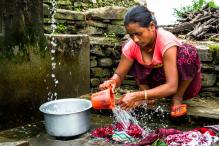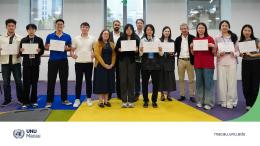Artificial intelligence (AI) is known to have a powerful effect on gender inequality[1]. While this new technology can provide tools for the social and economic empowerment of women, it can also deepen inequalities in several ways. For example, AI-powered human resources tools have been found to exclude female candidates by filtering out resumés containing gendered phrases[2]. Algorithms allocating loans have also been shown to automatically allocate lower loans to women than to men, all other variables being equal[3]. Virtual voice assistants, such as Apple’s Siri, have also been found to perpetuate specific stereotypes about women, presenting women as flirtatious and submissive[4]. Translation tools also currently present women in traditional contexts that can lead to socio-economic disempowerment, such as automatically assuming positions of technical and leadership to be held by men[5].
If unaddressed by policy makers, these uses of AI can have a detrimental effect on gender equality, perpetuating stereotypes leading to disempowerment and actively discriminating against women. These risks present an opportunity, however, to create policies that ensure the quality of AI systems while protecting gender rights. In this regard, Southeast Asian countries are at a critical point in AI regulation, as they have begun to develop policies for ethical uses of AI.
This research project therefore aims to define and understand the current state of artificial intelligence (AI) policy in Southeast Asia as it relates to gender. The project will provide a framework for the training of policy-makers in Malaysia, Indonesia, Thailand and the Philippines, in order to inform the development of gender-sensitive policies.
[1] UNESCO and EQUALS Skills Coalition (2019).
[2] Reuters (2018).
[3] Kinght, W. (2019).
[4] UNESCO and EQUALS Skills Coalition (2019).
[5] Bolukbasi et al (2016).





